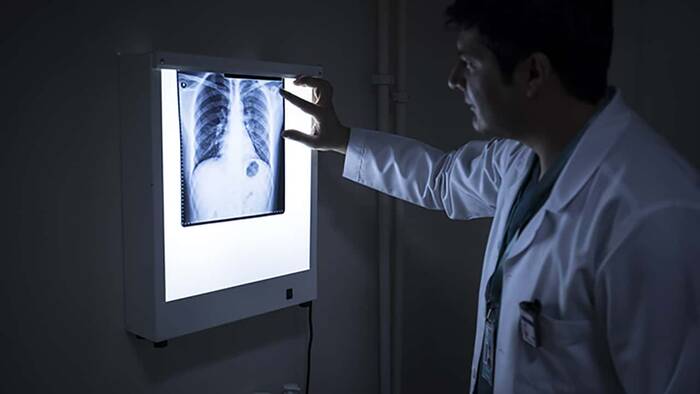Pulmonary aspiration is a disorder in which food, liquid, saliva, or vomit is inhaled into the airways or lungs.
Pulmonary aspiration requires urgent attention. You need a diagnosis such as laboratory analysis and imaging attended by the specialist.
Aspiration is a strong burst of air that accompanies the relaxation of an obstructive.
Aspiration can occur when a person has trouble swallowing normally.
Symptoms include coughing, shortness of breath and in some cases choking, dyspnea, hoarseness, loss of consciousness.
There is a risk of pulmonary aspiration when eating, drinking, or receiving tube feeding. It can also occur when vomiting or having heartburn.
Pulmonary aspiration consists of connecting one end of a long, transparent flexible plastic tube to a suction pump; the other end is passed through the nostril or mouth into the trachea. Aspiration of a foreign body usually produces an acute condition with dyspnea, intense cough, cyanosis, and stridor, which can cause laryngeal edema, pneumothorax, and even cardiac arrest.
Aspiration pneumonia is caused by the inhalation of oropharyngeal contents into the lower respiratory tract, leading to lung injury and resultant bacterial infection. It usually occurs in patients with altered mental status who have an impaired gag or swallowing reflex.
Aspiration pneumonia is a disease that entails serious complications if a doctor is not seen quickly. Suffering dysphagia, difficulty swallowing solids and liquids, a very common disorder among Alzheimer’s patients, is one of the risk factors.
Aspiration pneumonia is present when Gram stain of sputum or tracheal secretions reveals mixed flora. The infection usually affects the lower part of the lung lobe.
Treatment of aspiration pneumonia requires the administration of antibiotics. Some people feel better and can return to their normal routine in one to two weeks, depending on the case up to a month or more.
Recommendations to avoid aspiration:
- Eat sitting down.
- Eat slowly and in small amounts.
- Do not get distracted while eating.
- Drink water with meals.
- Do not smoke.
Chronic Aspiration: is the condition in which the passage of oral or gastric content occurs intermittently or persistently into the airway and can cause lung injury.








